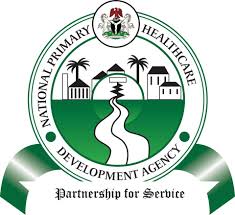By Iyemah David
The National Primary Health Care Development Agency (NPHCDA) said it has introduced a new comprehensive funding model and enhanced oversight mechanisms to revitalise Primary Healthcare Centres across Nigeria.
NPHCDA Executive Director, Dr Muyi Aina, disclosed this during the inauguration of the Basic Health Care Provision Fund held on Thursday in Abuja.
He said the move was aimed at evaluating progress across the health sector, focusing primarily on the effectiveness of the Sector-Wide Approach (SWAp).
The Joint Annual Review serves as a vital platform for driving the Sector Wide Approach in the country.
It unites key stakeholders to assess progress, address challenges, and pinpoint opportunities for improvement.
It also reflects on achievements, openly discussing challenges and identifying areas for improvement, creating a constructive space for aligning on what matters most: improving health outcomes for all Nigerians.
Dr Aina said BHCPF reforms are equally aimed at addressing long-standing issues of inadequate funding, mismanagement and inefficiency that have plagued Nigeria’s PHC system.
He stressed that the new reforms focus on improving access to healthcare services, ensuring the effective use of resources and increasing accountability at the local government level.
According to him, the BHCPF reforms introduce a revamped funding structure that prioritises direct allocations to PHCs, with strict financial oversight aimed at curbing waste and corruption.
“This new funding model will ensure that resources are allocated directly to the PHCs based on performance, patient outcomes and facility requirements.
“For the first time, local governments will have a significant role in the allocation and monitoring of these funds, which will make sure that the resources are spent where they are most needed,” he said.
According to him, the BHCPF 2.0 initiative is expected to address the gaps in the delivery of essential health services, including maternal and child health, immunisation and the treatment of common diseases such as malaria and tuberculosis.
Aina said that the new model also focuses on the integration of digital technologies for monitoring health services and strengthening data collection, reporting and transparency.
“A key aspect of the reforms is the establishment of an independent oversight committee that will monitor the proper utilisation of the funds at the grassroots level.
“This will ensure that financial and operational accountability is upheld and that the PHCs meet the standards required to deliver quality healthcare.
“The unveiling of the BHCPF 2.0 reforms is part of the ongoing efforts by the Nigerian government to boost the effectiveness of its healthcare system and improve the lives of millions of Nigerians in underserved communities.
“The initiative will also enable greater public and private sector collaboration in improving healthcare infrastructure and services,” he said.
Similarly, Dr Bolanle Olusola-Faleye, Chief of Party, USAID Local Health System Sustainability Project (LHSS), said the success of the initiative would depend on its effective implementation at the local level.
Dr Olusola-Faleye said if local communities are fully involved and there is robust monitoring, the funding model could set the stage for transforming Nigeria’s healthcare delivery system.
“The NPHCDA has committed to ongoing engagement with state and local government authorities to ensure the reforms’ seamless rollout.
“In addition, it highlights that continuous training for healthcare workers will be essential to maximise the impact of the BHCPF 2.0 reforms on patient care,” she said.
She said that Nigeria hopes to make significant strides towards achieving Universal Health Coverage (UHC) and improving the overall health outcome of its population, particularly those in rural and underserved areas.
Several local and international stakeholders, including donors and civil society organisations, were present at the inauguration, as some stressed the importance of community engagement in the anticipated success of the reforms.




